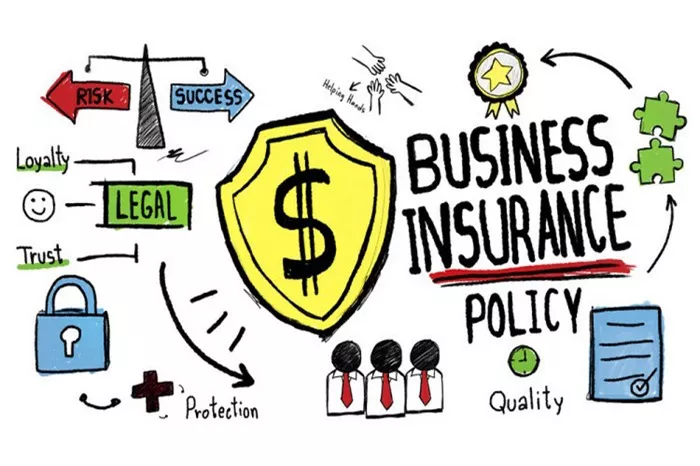When it comes to protecting your business, two types of insurance often come up in conversation: employers’ liability insurance and professional indemnity insurance. But are they the same? The simple answer is no, they are not. While both serve to protect businesses from liability, they cover very different risks.
In this article, we will explain what each of these insurance policies covers, who needs them, and how they differ. By the end, you’ll have a clearer understanding of the distinctions between employers’ liability insurance and professional indemnity insurance, and which one your business might need.
What Is Employers’ Liability Insurance?
Employers’ liability insurance is a type of insurance that protects employers against claims made by employees who suffer injuries or illnesses due to their work. This insurance is typically required by law in many countries for businesses that have employees. The policy covers the cost of legal fees, settlements, and compensation for employees who are injured or fall ill as a result of their work environment or duties.
For example, if an employee slips and falls in the workplace, or develops a work-related illness due to exposure to hazardous materials, employers’ liability insurance would cover the employer’s costs associated with the claim. This might include medical expenses, lost wages, and any other compensation deemed appropriate by the courts.
In many countries, including the UK and the US, employers’ liability insurance is a legal requirement for businesses that employ workers. The specific coverage limits and regulations may vary by country, but the general principle is the same: businesses need to protect themselves against employee claims of work-related injury or illness.
What Is Professional Indemnity Insurance?
Professional indemnity insurance, also known as errors and omissions insurance (E&O), provides coverage for businesses or professionals against claims of negligence, mistakes, or failure to perform their professional duties. This type of insurance is essential for businesses or individuals who offer advice, services, or expertise to clients. It covers legal costs, settlements, and damages if a client claims that the professional’s advice or services resulted in a financial loss or damage.
For example, if an architect makes a design error that leads to significant financial loss for a client, or if a consultant provides poor advice that causes a client to lose money, professional indemnity insurance would cover the costs associated with the claim. This includes legal defense costs, compensation, and any settlements that need to be paid.
Professional indemnity insurance is especially crucial for service-based businesses like law firms, medical practices, accounting firms, and consultancies. In some industries, it’s also a legal requirement to carry professional indemnity insurance in order to operate.
Key Differences Between Employers’ Liability and Professional Indemnity Insurance
While both employers’ liability and professional indemnity insurance offer liability protection, they are designed to cover very different risks. Below, we’ll break down the key differences between these two types of insurance:
1. Who Is Covered?
Employers’ Liability Insurance: This insurance is designed to cover businesses against claims made by employees for work-related injuries or illnesses. It is specifically focused on the relationship between employers and employees.
Professional Indemnity Insurance: This insurance protects professionals or businesses that offer services or advice to clients. It covers claims made by clients or third parties who allege that they suffered financial losses due to the professional’s actions, advice, or errors.
2. What Is Covered?
Employers’ Liability Insurance: This policy covers injuries or illnesses that employees suffer while performing their work duties. It can cover medical expenses, legal fees, and compensation costs related to these claims.
Professional Indemnity Insurance: This policy covers claims made by clients who allege that a professional made an error or provided negligent advice that caused them financial harm. It also covers mistakes or omissions in the professional services offered.
3. Legal Requirements
Employers’ Liability Insurance: In many countries, such as the UK, employers’ liability insurance is a legal requirement for businesses that have employees. The specific requirements may vary, but businesses without this insurance could face hefty fines and legal penalties.
Professional Indemnity Insurance: While professional indemnity insurance is often recommended for businesses offering advice or services, it is not typically a legal requirement. However, some industries—like legal, medical, or financial services—may mandate that professionals carry this type of insurance as part of their regulatory standards.
4. Target Audience
Employers’ Liability Insurance: This insurance is needed by businesses of all sizes that employ workers. Whether you run a large corporation or a small local shop, if you have employees, you likely need employers’ liability insurance.
Professional Indemnity Insurance: This insurance is needed by professionals who provide services or advice to clients. Common sectors that require professional indemnity insurance include healthcare, legal, accounting, consulting, and architecture.
5. Cost of Coverage
Employers’ Liability Insurance: The cost of employers’ liability insurance is typically based on the size of the workforce, the industry, and the risk level associated with the work environment. For example, businesses in high-risk industries like construction will pay higher premiums than those in low-risk sectors.
Professional Indemnity Insurance: The cost of professional indemnity insurance is often influenced by factors like the nature of the professional services offered, the size of the business, and the level of risk involved. High-risk professions, such as medical or legal professionals, tend to pay higher premiums than low-risk sectors like software development or marketing.
Why Do You Need Both Types of Insurance?
Although employers’ liability insurance and professional indemnity insurance cover different risks, many businesses could benefit from having both policies. Here’s why:
Legal Protection for Employees: Employers’ liability insurance ensures that your business is covered if an employee suffers a work-related injury or illness. This is not only a legal requirement in many countries but also provides peace of mind knowing that you won’t face financial ruin from employee claims.
Protection for Clients and Professionals: Professional indemnity insurance helps protect your business and personal finances if a client makes a claim for negligence or errors in the services you provide. It’s essential for businesses that rely on providing expert advice or services, as even the smallest mistake can lead to large financial losses for clients.
For example, a business that offers consulting services may have professional indemnity insurance to cover claims of poor advice that led to a client’s financial loss. At the same time, if the company has employees, they would need employers’ liability insurance to protect the business from employee injury claims.
When Do You Need Employers’ Liability Insurance?
In most cases, businesses are required by law to have employers’ liability insurance if they employ workers. The specific requirements vary depending on the country, but here are some general guidelines:
Legal Requirement: In many countries, such as the UK, it is mandatory for businesses to carry employers’ liability insurance if they have employees. This insurance helps ensure that employees who are injured or become ill due to their work environment or duties can receive compensation.
Small Businesses: Even small businesses with just one employee may need employers’ liability insurance. However, certain exceptions may apply, such as for family-run businesses or certain sectors.
Fines for Non-Compliance: In many countries, businesses that fail to carry the required employers’ liability insurance can face severe penalties, including fines and legal actions.
When Do You Need Professional Indemnity Insurance?
Professional indemnity insurance is essential for any business or individual that provides advice, services, or expertise to clients. While it is not always legally required, it is a wise investment to protect against claims of negligence, errors, or omissions.
Here are a few instances when you would need professional indemnity insurance:
Client-Facing Professions: If you work directly with clients and offer services like consulting, financial advice, legal services, or healthcare, professional indemnity insurance is a must.
Regulatory Requirements: In some industries, such as healthcare or legal services, professional indemnity insurance is required by law or professional regulations to practice.
Protecting Against Negligence Claims: Even if you don’t face legal requirements for professional indemnity insurance, it’s a good idea to have it if you provide expert services. It protects your business from the financial impact of mistakes or poor advice.
Final Thoughts
In summary, employers’ liability insurance and professional indemnity insurance are two distinct types of coverage that serve different purposes. Employers’ liability insurance is required by law to protect businesses from employee-related claims, such as injuries or illnesses sustained in the workplace. On the other hand, professional indemnity insurance provides protection for businesses that offer expert services or advice, covering the cost of claims made by clients who suffer financial loss due to negligence or mistakes.
Understanding the differences between these two types of insurance can help you make an informed decision about the protections your business needs. For many businesses, having both policies is essential to ensure comprehensive coverage. By safeguarding your business with the appropriate insurance, you can reduce the financial risks and focus on growing your company with peace of mind.
Related topic:
Is Malpractice Insurance The Same As Liability Insurance



















